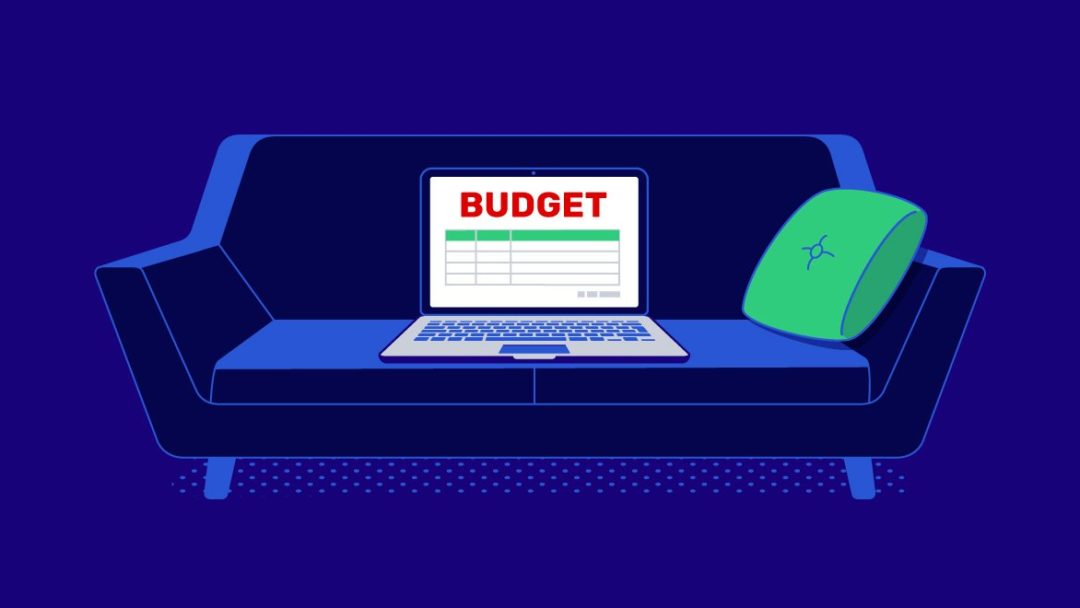Debt Relief For Unemployment
At any point in time, millions of U.S. workers are unemployed. But that doesn’t mean you’re destined to add to your debt burden. As you adjust to your new economic reality, you can add paying off your debt to the list for a fresh start.
A New Strategy For Your Financial Situation
Being laid off is stressful, and looming debt can only exasperate the situation. So, what do you do when your paycheck has stopped while the bills keep coming in? If you’re struggling to make ends meet, you’re not alone. The average savings in the nation is just $3,240 for Americans under 35 and $6,400 for those ages 55-64, according to the Federal Reserve’s Board Survey of Consumer Finances.
Don’t despair! There are many strategies to continue paying your bills and cover your debt. This guide will take you through the options that can help protect your finances while you’re unemployed. Don’t be surprised if it requires less sacrifice than you might think.
Unemployment can throw your financial situation into a tailspin. But while you’re losing your paycheck, you’re gaining additional funds through unemployment benefits. Use the checklist below to receive the money and benefits you’re entitled to during your time of need.
Contact HR
Inquire with your human resources department about a severance package, next steps for medical insurance and to request a rollover of your 401(k) funds, if applicable. Depending on the company, you could also receive compensation for unused paid time off – be sure to ask.
While there is no law that mandates an employer must provide a severance package, most companies do so out of good faith. You usually have up to 21 days to accept the agreement, so use that time to thoroughly review the terms before signing. The fine print could read that you waive your right to unemployment insurance or that it prohibits you from working for competitors!
If you’re unhappy with your severance package, you have the legal right to negotiate the amount. Simply make a request to HR for a larger payout. While they can refuse to negotiate, they might agree to your terms. You never know unless you ask.
File For Unemployment Insurance
Unemployment insurance can play a significant role in covering part of your lost income. Most states consider the first week after filing as a waiting period, which means you don’t get paid. The sooner you apply and qualify, the faster the money will be in hand.
While eligibility requirements and application approval vary by state, requirements usually include having worked a minimum length of time or earned a minimum income. The amount you qualify for is based on this information. Unemployment normally runs for up to 26 weeks and could require proof that you are actively seeking work. Visit your state’s unemployment page to review eligibility requirements before applying
According to a Zippia 2022 survey:
- 40% of Americans have been laid off or terminated from a job at least once
- 48% of Americans suffer anxiety from being laid off
- 28% of Americans have been laid off in the past two years
Replace Medical Insurance Coverage
Your medical insurance coverage will most likely end when your job does. The federal government created the Consolidated Omnibus Budget Reconciliation Act (COBRA) for just this reason. It extends your employer’s current medical coverage to you for up to 36 months. This could take a big bite out of your budget since you’re required to pay the entire premium—individuals could pay as high as $800 a month.
If the cost of COBRA is too high, you may be eligible for coverage under the Affordable Care Act. This government insurance plan offers lower premiums based on your income. You may also qualify for medical insurance under a spouse’s or a parent’s plan if you are under 26 years old. If you have a condition that requires medical attention, it is imperative you sign up for insurance as soon as possible.
Decide What To Do With Your 401(k)
There are four options you can take with your 401(k) when you leave your job either voluntarily or due to layoffs:
- Keep It In Your Current Plan:
If your 401(k) contains over $5,000, you may be able to leave the funds in your current plan. It might not be the best idea since you can no longer contribute to or withdraw funds until age 72. But if you don’t have a second 401(k) plan or an IRA, you won’t have to open a new account.
- Roll It Over To Your New 401(k):
If you find a new job, congratulations. Now that you’ll be contributing to a new 401(k) account, you might want to roll over your previous employer’s plan. Consolidation makes it easier to track your retirement savings and helps your money work harder, especially if your employer offers a matching plan.
Contact your previous plan’s administrator, complete the paperwork, and confirm it hits your new account. Since the rules, investment options and fees of 401(k)s vary, check your new employer’s plan before making a move.
- Roll Over Your Plan To An Existing IRA:
If you have an IRA, you can deposit your 401(k) into it without tax implications. Contact your previous plan’s administrator, complete the paperwork, and confirm it’s deposited into your IRA account.
- Cash Out Your Plan:
If you’re desperate for money, you could cash out the funds from your 401(k). But this isn’t recommended since it takes away from your retirement and will cost a lot in taxes if you’re under 59 ½ years of age.
In addition to unemployment benefits, here are many other ways to make your finances go further.
See where you can cut expenses
Do you know how much money comes in and how much goes out each month? Seeing the big picture can help prevent you from overspending and encourage you to cut back.
Tracking your money is the first step toward getting a handle on your finances. Jot down how much you bring in through unemployment, investments, a second job, Social Security, and a pension, if it applies, etc.
Now make a list of your monthly expenses and prioritize by “There is no way I can live without this.” This typically includes housing, utilities, groceries, transportation, and healthcare. Don’t forget to add savings to your monthly amount. Even if you only stash away $10, the money can add up and bail you out of a bad situation.
Next comes those expenses you enjoy but don’t really need. Perhaps you could take a break from cable or streaming services for the time being. Or apply for a low-income subsidy for Internet. Do you really need two cars now that you’re no longer commuting? You can also save on essentials like insurance by raising your deductible. This isn’t going to be fun but diving deeper into debt is the only alternative.
Make a budget and prioritize expenses
When you’re bringing in a regular income, treating yourself isn’t a big deal. But when you’re unemployed, every dollar counts. Now isn’t the time to purchase the latest phone or dine at that snazzy new steakhouse.
Budgeting can act as a blueprint that reflects your new financial situation. Now that you’ve prioritized and added up your expenses, do you have money left over at the end of the month? If not, you may have to tap government programs to make ends meet. And put the non-essentials on pause until you find a new job.
If you do have money left over, adding something special like a date night could help you maintain your emotional and physical health. Don’t feel guilty. Your overall well-being matters, and being a hermit isn’t a condition of unemployment.
There are several ways to create a personal budget and many apps to help ensure you’re successful at it:
- Zero-based:
Allocate all your money to expenses for needs and wants, as well as short- and long-term savings and debt payments. The goal is that your income minus your expenditures equals zero by the end of the month
The YNAB app helps you plan for future financial expenditures, rather than track past transactions.
- 50/30/20:
Divide your money into three categories. Put 50% toward necessary expenses, 30% for discretionary spending, and 20% to savings:
Moneywyn helps you save time and money by focusing less on daily expense tracking and more on budget planning.
- 80/20:
Prioritize spending by putting 20% of your monthly earnings into an emergency account and using the other 80% for essentials:
Mint is a free mobile app that syncs all your accounts in one place, tracks your spending and monitors your credit score.
- Envelope method:
Track exactly how much money you spend and where it goes every month by tucking your cash away in labeled envelopes:
Goodbudget is a free mobile app in which you devote a certain amount to your essential spending categories each month.
- Write everything down:
If mobile apps aren’t your thing, you’ll find a free monthly budget worksheet at Consumer.gov
You can also use this opportunity to set limits and save on your discretionary spending.
Practice disciplined spending
You’ll save money by cutting down on the essentials. But this doesn’t mean you need to keep the heat on 30 degrees in the heart of winter. Below are a few money management tips you can use today:
- Switch your auto insurance if you find a lower premium with similar terms
- The same goes for your phone and streaming service
- Use those coupons, the savings add up
- Earn cash back or credit for future purchases with apps like Fetch or Rakuten
- Stock up when an item you regularly use goes on sale, like coffee or garbage bags
- Downgrade to a less expensive home if your finances become unbearably tight
- Shop at a member-only warehouse like Sam’s Club or Costco, where practically every purchase is a bargain.
Lay off the credit cards
Credit card debt is easy to accrue but difficult to pay off as those late fees and penalties add up. While it might be tempting to reach for that card when you’re strapped for cash, you must resist! Either eliminate your credit card use altogether or create a plan to manage it on a greatly reduced income. You could also upload the amount you can afford onto a debit card every month. Curtailing your spending won’t be easy, especially if credit card debt got the best of you when you were employed.
If you don’t feel comfortable going it alone, debt relief could be your go-to solution. Credit card debt relief is the process of negotiating a settlement to pay off your debt for less than you owe. Since 2009, National Debt Relief has negotiated $5 billion in debt for over 500,000 people. Our representatives are consistently rated as the best in the business. And since remaining debt free requires a change in your spending habits, we’ll work with you to create a strategy and a budget you can live with.
Refinance high-interest credit cards
Refinancing is used to lower the interest rate on high-interest credit cards and loans. Your options include debt consolidation, balance transfers, a personal loan, home equity loan and borrowing from a retirement account. Qualification is determined by your credit score, credit history, debt load and finances. While this extends the length of the loan, your priority while unemployed should be building an emergency fund.
Transfer your credit card debt to a 0% APR card
There are many 0% introductory APR (annual percentage rate) credit cards to be found. Move high-interest balances and save with a 12–24-month reprieve on interest. If you can’t transfer all your debt, continue making minimum payments on those balances to avoid default. Be sure to pay off the transferred funds before the introductory offer expires and interest rates skyrocket. This option only applies if you have a good credit score.
Get a side hustle
Bring in extra cash with a side hustle, which you can often do from home. If you love dogs, pet sit. Blogs are great to share a passion like photography or cooking. But be aware that a part-time gig can reduce or temporarily eliminate your unemployment benefits.
Sell Items Online
You could have thousands of dollars sitting around your house. Remember those jeans you wore to the Beatles concert? Today they’re considered vintage and could sell at a nice profit on an online site like eBay, Poshmark, or The Real Real – to name a few. You could also consign for other people who aren’t proficient with the computer and take a commission of 30-50% for the items that sell.
Take equity from your home
If you’re a homeowner, you could take money out of your equity with a cash-out refinance. What you’re doing is basically adding to your current mortgage and taking out the difference to cover essential expenses. Tapping your equity allows you to access needed funds without having to sell your home or take out a higher-interest personal loan.
Contact your lenders
Most creditors and issuers offer hardship plans for customers experiencing job loss. Reach out to check if they’re willing to delay payments or extend the length of the loan to reduce your monthly amount.
Creditor hardship:
Financial hardship assistance is an umbrella term for options like refinancing and rescheduling or delaying payments. Lenders want to receive their money, so they might agree to lower your minimum monthly payment to prevent default. They may also allow you to skip a payment and add it to the end of the loan or refinance your loan altogether. You can save money on auto costs by enrolling in your auto or mortgage lender’s temporary hardship program.
Entering a hardship agreement does come with repercussions. It will likely be recorded in your credit history and lower your credit score. Seeking this kind of relief is typically a last resort, but worth considering if you’re out of options
Creditor hardship programs:
- The U.S. Department of Health and Human Services (HHS) can help you with hospital bills and medical costs.
- The Low Income Home Energy Assistance Program (LIHEAP) covers heating and utility costs if you qualify.
- SNAP (Supplemental Nutrition Assistance Program, formerly food stamps), can significantly lower your grocery bills but there are purchase restrictions.
- Your state’s Medicaid services.
In addition, the federal government offers programs that provide either cash assistance or benefits to individuals and families:
Benefits from social welfare programs are usually based on a low-income criteria and include:
- Supplemental Security Income (SSI)
- Supplemental Nutrition Assistance Program (SNAP)
- Special Supplemental Nutrition Program for Women, Infants, and Children (WIC)
- Temporary Assistance for Needy Families (TANF), including Pass through Child Support
- General Assistance (GA)
Benefits from social insurance programs are typically based on age or employment status and include:
- Social security (self and on behalf of a dependent child)
- Department of Veterans’ Affairs benefits (except Veteran’s pension)
- Unemployment insurance compensation
- Workers’ compensation
Debt settlement:
If you’re carrying a heavy debt load, getting laid off can be the last straw. A reduced income or the lack of any income makes paying off your debt an insurmountable task. As a result, the debt skyrockets due to an increase in interest costs, late fees, and other penalties assessed by creditors.
Regardless of your unemployment situation, it’s important to consider your options for debt repayment. Staying ahead of these balances or catching up means you aren’t one paycheck away from financial ruin. Debt negotiation and debt settlement can simplify the repayment process, making it easier to turn your financial situation around. Being proactive is essential so that you have options if unemployment occurs, and you have a strategy while working full-time.
Understanding the most common unemployment issues can help you overcome them. Here’s an overview of what can lead to a reduced paycheck or a lack of one altogether:
Underemployment vs. Unemployment
Unemployment refers to losing a full-time job. Underemployment occurs when your income isn’t sufficient to cover the cost of living, even if you’re working full-time. If your expenses are higher than your income, you fit the definition.
People find themselves in this situation when they can’t find a sufficient-paying full-time role. They settle for a part-time position because earning something is better than nothing. Underemployment often leads to debt issues, especially if your income is high enough to disqualify you from receiving assistance through other programs.
Overtime reduction
Even though a reduction in overtime hours doesn’t result in full unemployment, it can greatly impact your lifestyle if you counted on the extra proceeds. If you’re suddenly facing capped hours, it’s all too easy to slip into a financial hole where you spend more than you earn.
Reduced hours:
When things slow down in the workplace, employers sometimes reduce employees’ weekly hours in lieu of layoffs. If you can no longer meet your financial obligations, you might need a side gig. You could also quit in favor of finding a new full-time position, but that’s easier said than done.
Debt from furlough
Companies dealing with internal budgetary issues often lay off staff or cut salaries to save money. The alternative is a furlough, which means the employee faces temporary unemployment with the expectation to return. While a company might offer partial furlough pay, most employees give up their paycheck until they return to work. Furloughs and unemployment may sound similar, but there is a distinct difference. A layoff means the employee won’t be returning while a furlough is a temporary solution after which the employee will resume their role.
Temporary unemployment from job seasonality
Seasonal unemployment can happen in any industry where employees face temporary job loss during certain times of the year. For example, construction jobs tend to slow down or come to a halt during the cold winter months. And a ski resort is likely to be less busy in the summer. Even though job seasonality is different from unemployment, the concept is the same: you are no longer bringing home a paycheck.
Spouse job loss and unemployment
If two incomes are coming in, families typically build their life around both. A drop in a spouse’s paycheck can mean you can no longer cover all your bills or fund your lifestyle.
Managing unemployment
The majority of workers face unemployment issues at one time or another and rely on unemployment benefits for support. Now that you have a bit of free time, use it to reassess your budget and financial situation—there’s always room for improvement. You might even find a simple way to cut spending that didn’t occur to you before. A good place to start is with subscriptions and memberships.
Regardless of your unemployment situation, it’s still important to focus on repaying your debts. Debt settlement can simplify the repayment process, making it easier to turn your finances and your life around.
People often perceive their job as more than just a way to make a living. It influences how we see ourselves, as well as the way others see us—especially when your passion is your career. Even if you didn’t lose your dream job, you will mourn not seeing your co-workers and the loss of your daily routine. The lack of a salary goes without saying.
Suddenly finding yourself unemployed can leave you feeling lost, angry, and depressed. It’s normal to feel anxious about what the future holds. But no matter how bleak things seem right now, this too shall pass. Searching for work can become a full-time job. And if you immediately dive into searching for a new role, you might be surprised at how much more productive you’ll feel.
Emotional and physical effects of unemployment
The anxiety that accompanies unemployment and financial instability is known to affect people’s physical and mental health. In fact, long-term stress from being unemployed can lead to health problems including migraines, hypertension, diabetes, cardiovascular disease, back pain, and sleeplessness. Emotional issues include depression, illness, substance abuse, anger, and violence.
Many households rely on multiple incomes to pay bills and cover daily expenses, and the loss of that regular paycheck can take its toll. A long stretch of unemployment in a marriage can cause stress, fighting and even a breakup. Is it any wonder that money is one of the main causes of divorce?
You would think that the unemployed person could use this opportunity to chip in with household duties. But many women who bring home a paycheck also report having responsibility for household chores. This can add a lot of conflict to an already tense situation. How bad can it get? Men who are not the breadwinners in a marriage are more likely to get divorced.
Coping with the pressure of unemployment
Being laid off and getting fired are two very different things. Layoffs usually have nothing to do with your individual performance, it is the company as a whole that is suffering. This could be due to inflation, financial turndown, redundancy, and more. Redundancy happens when employees are no longer required for the role through no fault of their own. For instance, someone on an assembly line might be replaced with a robot.
Getting fired, on the other hand, can reflect the individual. An employee’s job is terminated against their will for reasons such as poor work performance or unethical behavior by breaking company rules. If you get fired, you can use the time to reassess your goals. Perhaps the answer is a complete career change. Sometimes the job simply wasn’t a good fit. Learn from your experience and move onto a better role.
You have every right to be mad that you lost your job. But taking out your anger on loved ones or bingeing on booze or food isn’t a healthy way to deal with your disappointment. You can turn that negativity into positive energy through exercise, catching up with friends, reassessing your goals, or even tackling a spring cleaning.
During your free consultation, a debt coach will determine a timeline and your monthly payment amount to settle your debts. Most clients become debt free in as little as 24-48 months. You will immediately begin depositing that monthly payment into an FDIC-insured dedicated savings account in your name.
Once a debt has been settled, we will contact you for approval and ask that you release the funds. If you lack the money to settle all your debts, we offer a payment program that enables you to make just one monthly payment to National Debt Relief. As the funds build up, we use the money to pay your creditors.
National Debt Relief is accredited with an A+ rating by the Better Business Bureau and belongs to the American Association for Debt Resolution — the watchdog of the debt settlement business. To be a member of this Council, we pledged to treat our clients with transparency, honesty, ethics, and fairness.
To learn more about how National Debt Relief can help you take back your life, call 800-300-9550 or complete the no-obligation debt consultation form today. We promise to support you every step of the way, just like we have done for over 500,000 people across the country.
At the core of our client relationships is one simple factor: trust. We know that trusting anyone with your finances takes a leap of faith, and we live up to your expectations by providing our undivided attention. That way, we can better identify your goals and concerns before customizing an affordable plan that can save you the most money.
National Debt Relief is the first debt settlement company to be accredited by the Better Business Bureau with an A+ rating, the American Association for Debt Resolution, the Internal Association of Professional Debt Arbitrators, and rated #1 on Consumer Affairs. We are proud to be the country’s only debt relief provider to enjoy recognition from these three important organizations.
Our Commitment To Customer Care Leads The Industry
We will always act in your best interest and our reviews reflects that promise:
- Over 75,000 5-star reviews from clients who have taken back control of their finances
- 4.83 out of 5 rating on TrustPilot
- Rated #1 for debt consolidation by:

- What disqualifies me from unemployment?
- Are already receiving benefits from another state
- Made a false or fraudulent misrepresentation to obtain benefits
- Are receiving income, such as retirement or severance pay
- Are not financially eligible (you do not have enough wages in the base period)
- Which state do I file in?
- What information do I need to file a claim?
- Your driver’s license or state-issued ID number
- The names, addresses, phone numbers, and dates of employment for all employers where you have worked in the last 18 months
- Your rate of pay and income from each employer
- The name and local number of your labor union or hiring hall, if applicable
- Your alien registration number (A-number), if applicable
- Proof of military service and wages (DD214 member copy 4), if applicable
- Proof of federal civilian service and wages (SF8 and SF50), if applicable
- The names, social security numbers and dates of birth for all dependent children, if applicable
- Can I claim unemployment if I’m fired?
- Can I collect unemployment if I’m temporarily disabled?
You can’t collect unemployment if you:
You should file your claim with the state where you worked. If you worked in a state other than the one where you now live or if you worked in multiple states, contact the state unemployment agency in the state where you now live. They can provide information about how to file your claim with other states.
Collect the following information before you file an unemployment claim:
Unemployment can happen due to being laid off, fired or resigning from the company. If you resign from your job, you typically aren’t eligible for benefits. Check with HR.
Yes. An accident or a lengthy illness could leave you temporarily incapacitated. In this case, you could receive statutory sick pay from your employer for 28 weeks. If this type of pay is unavailable or your sick pay has ended, you can claim unemployment benefits.

Something really exciting happens after people have their first phone call with us.
They immediately feel a sense of relief knowing they have a plan to get out of debt.
Pay off your debt from unemployment
- Receive A Free Savings Estimate Today
- See How Quickly You Can Be Debt Free
- No Fees Until Your Accounts Are Settled







